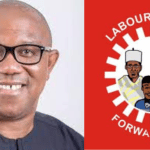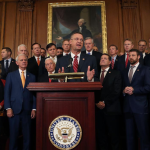A bold move from the Federal Government of Nigeria is sending ripples across the education sector.
In what’s being described as a controversial but calculated policy shift, the government has announced a seven-year suspension on the approval of new universities and other tertiary institutions.
While officials argue it’s a step toward quality control, critics fear it could stifle access and innovation in a country where youth demand for higher education continues to outpace supply.
Nigeria, Africa’s most populous nation—with over 220 million people and a median age of just 18, is pressing pause on the expansion of its already strained higher education system.
The Federal Ministry of Education says the moratorium will last seven years, halting the approval of all new universities, polytechnics, and colleges of education—both public and private.
The move comes against the backdrop of chronic underfunding, overcrowded classrooms, and ongoing industrial actions that have paralyzed academic calendars and raised concerns about declining standards.
Nigeria currently has over 270 universities and 200 other tertiary institutions. But even with this number, a large portion of qualified candidates, over a million annually, are unable to secure admissions.
The Joint Admissions and Matriculation Board (JAMB) data shows just how deep the crisis runs. Admission rates hover around 30%, leaving hundreds of thousands without options.
According to some educationists, this a double-edged sword. Yes, quality assurance is important. But there is also the risk of deepening educational inequality if creating space for new institutions, especially private ones that can complement public efforts , are stopped and, or suspended.
For private investors, the policy is a bitter pill. Nigeria has seen a surge in private universities filling gaps left by the overstretched public sector. Many see this freeze as a setback for educational entrepreneurship.
The government, however, maintains that quantity without capacity is a ticking time bomb. Part of the plan includes a comprehensive audit of existing institutions—assessing staffing, infrastructure, research capacity, and governance.
Experts say many institutions, especially new or rural ones, lack basic facilities, laboratories, or qualified academic staff. As Nigeria battles brain drain, teacher shortages remain a major concern.
MUST READ: Lagos-Calabar Highway: Federal Government Defends Project As Defect Claims Emerge
For students and parents, the announcement adds to the uncertainty. With no new institutions on the horizon, competition for spots at existing ones could become even fiercer.
Ultimately, the suspension signals a shift in policy focus—from expansion to consolidation. But whether this strategy strengthens the system or simply strains it further, remains to be seen.
A difficult balancing act, Nigeria’s education system is caught between managing quality and meeting demand. The coming years will test whether a freeze leads to reform—or simply freezes opportunity for the next generation.
We’ll be watching.
(Editor: Ena Agbanoma)








